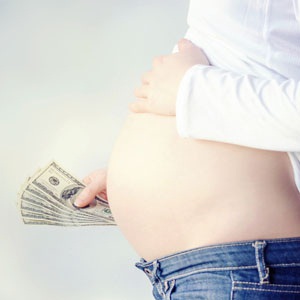
Lack of regulations around international commercial surrogacy has left many babies in stateless limbo, with no country granting them citizenship due to parental legalities.
Multimillion dollar business
Experts said the problem could affect thousands of babies as more and more couples seek surrogates in countries like India, Mexico and Thailand, turning it into a multimillion dollar business.
Problems arise when the country of the intended parents and the country of the surrogate mother both refuse to grant the baby nationality, or when the parents who ordered the baby decide to abandon it.
Read: Indian surrogate mothers tell their tales
“International commercial surrogacy can and does lead to child statelessness,” said Claire Achmad, the New Zealand lawyer told experts the first international forum on statelessness.
No basic rights in any country
Stateless people have no nationality and are not accepted as citizens by any country. Without citizenship, stateless children are deprived of basic rights most people take for granted and cannot access healthcare and education.
Achmad cited the case of a Norwegian woman, Kari Ann Volden, who had used an Indian surrogate to carry a baby created from a donated egg and sperm.
The surrogate gave birth to twin boys in early 2010, but Norway refused to give Volden passports to take the twins home, saying the Indian surrogate was the legal parent. India also refused to recognize the babies, saying that Volden was the legal parent.
"For the first two years of their life, these twins (were) stateless,” Achmad said. Volden and the twins were stranded in India until she was able to go back to Norway and legally adopt them.
Read: Calls to stop commercial surrogacy in Thailand
The statelessness forum, which ended on Wednesday, focused on large-scale stateless situations. The United Nations is launching a major drive to end statelessness, which affects 10 million people around the world.
Achmad said the rise in surrogacy was creating "a new generation of children born lost, at a time when we are trying to eliminate statelessness".
She cited another case in which a gay couple from Belgium arranged for a baby to be born in Ukraine, but Belgian authorities refused to accept the men as the boy’s legal parents.
Neither Belgium nor Ukraine recognised the baby as a citizen, and he ended up spending the first 16 months of his life with foster parents and another year in an orphanage before he was allowed into Belgium.
Rejected babies
Lawyers said cases were currently sorted out in an ad hoc way, and there is a need for international regulation that takes into account the child’s best interests.
Sanoj Rajan, a professor at the School of Law at ITM University in India, said surrogacy was big business and the issue of potential statelessness was not as marginal as might appear. He said there were at least 10,000 surrogacy clinics in India, and most are not registered.
“No one knows how many surrogate children are being born in India,” he said.
Would-be parents come to India from other parts of Asia and the Middle East Gulf, as well as Europe and the United States.
Rajan said most citizenship problems arise when the parents are from a country that bans commercial surrogacy, like France, Italy, Germany and Spain, and the baby is created in a country where surrogacy is allowed like India, Ukraine, Russia and Thailand.
Read: Surrogacy may lead to exploitation
Babies born to surrogates may also end up stateless if the "commissioning parents" reject it, Rajan said.
This can happen if there is a fertility mix-up whereby the wrong sperm or egg was used, if the child is born with a disability, or if the parents' divorce before the baby is born.
He suggested countries that ban surrogacy could find alternative ways to penalise parents who break the law without penalising the baby by denying it a nationality.
Read More:
Police raid surrogacy clinics in Thailand
Biological parents leave twin with surrogate mom
New research on child abandonment and adoption
Image: Pregnant woman hand holding dollars from Shutterstock.
See breaking news and the hottest health tips before anybody else by joining South Africa’s biggest and best health community, like health24 on Facebook now!




 Publications
Publications
 Partners
Partners














